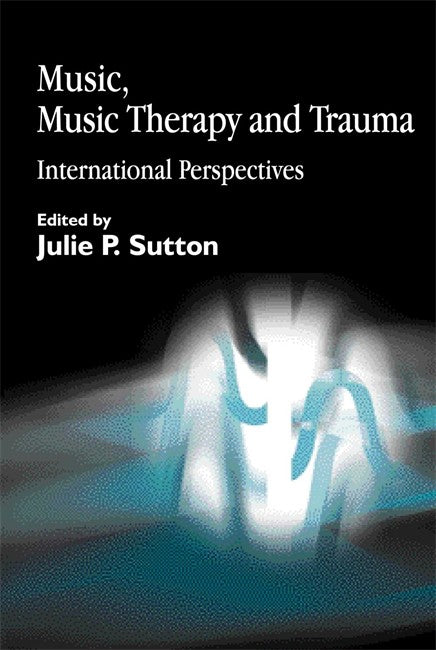Introduction, Julie Sutton, Belfast and Dublin; Clinical Advisor, Pavarotti Music Centre, Mostar, Bosnia. Part One, Trauma Perspectives. 1. Trauma: Trauma in context, Julie Sutton. 2. Neurology: The brain - its music and its emotion. The neurology of trauma, Dr Michael Swallow, OBE, FRCP. Part Two, Culture, Society and Musical Perspectives. 3. Culture and Society: The role of creativity in healing and recovering one's power after victimisation, Dr Marie Smyth, University of Ulster, and the Initiative on Conflict Resolution and Ethnicity. 4. Music: The politics of silence: the Northern Ireland composer and the Troubles, Hilary Bracefield, University of Ulster. Part Three, International Clinical Perspectives. 5. South Africa: Fragile rhythms and violent listenings: Music therapy with South African children, Dr Mercedes Pavlicevic, University of Pretoria. 6. UK: Music and human rights, Matthew Dixon, Medical Foundation for the Care of Victims of Torture. 7. Ireland: See me, hear me, play with me: Working with the trauma of early abandonment and deprivation in psychodynamic music therapy, Ruth Walsh Stewart, Our Lady's Children's Hospital, Dublin, and David Stewart. 8. Bosnia: A music therapy service in a post-war environment, Louis Lang and Una McInerney, Pavarotti Music Centre, Mostar. 9. UK: 'In the Music Prison': The story of Pablo, Helen Tyler, Nordoff-Robbins Music Therapy Centre, London. 10. Israel: Trauma and its relation to sound and music, Adva Frank-Schwebel, Bar Ilan University and David Yellin College, Jerusalem. Part Four, the Support Perspective. 11. Processes in listening together: An experience of distance supervision of work with traumatised children, Louise Lang, Una McInerney, Rosemary Monaghan and Julie Sutton, Bosnia and the UK. 12. The voice of trauma: A wounded healer's perspective, Diane Austin, New York University.Afterword, Julie Sutton. References. Index.
Request Academic Copy
Please copy the ISBN for submitting review copy form
Description
All the essays in Music, Music Therapy and Trauma are deceptively simple - the reader does not need a sophisticated knowledge of music to follow the arguments, nor a degree in psychology - but this is what makes them so appealing given the scarcity of material on this subject. These essays should be treated as sparks to the kindling of thinking, as laying the foundations for more rigorous readings and theorizations. If the connection between music and trauma interests you, then this volume is a must'.

